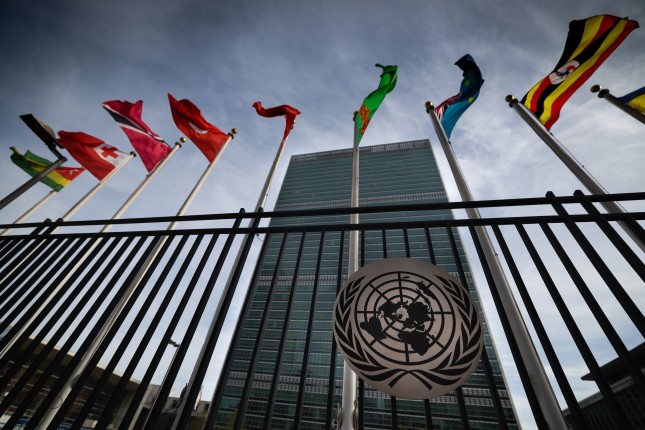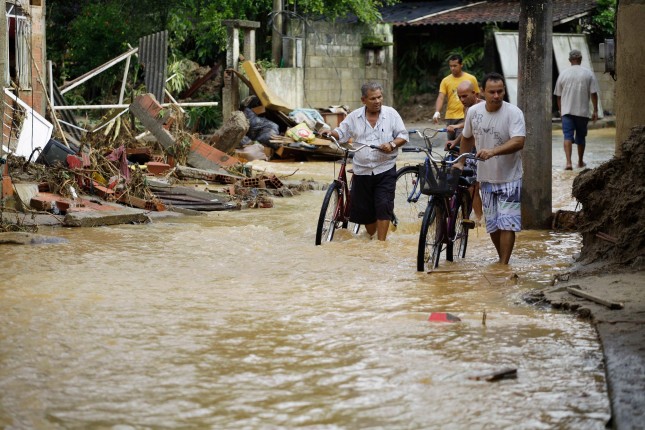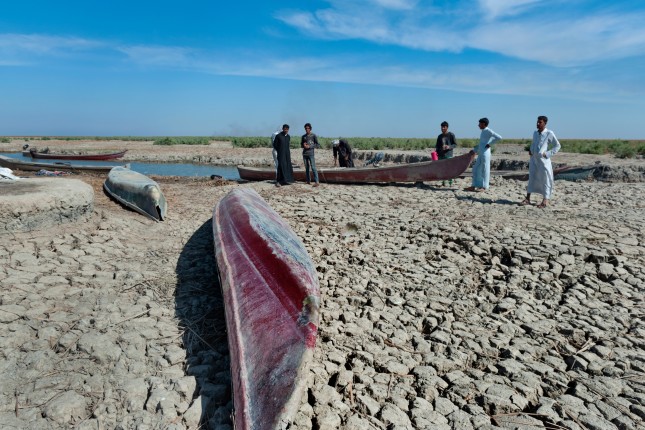-
ECSP Weekly Watch | August 14 – 18
›
A window into what we are reading at the Wilson Center’s Environmental Change and Security Program
Thirst for Relief: Prolonged Drought Intensifies Afghanistan’s Humanitarian Crisis
Afghanistan is the world’s sixth most affected country by climate-related threats—and its present acute challenge is water scarcity, intensified by climate change. The country is heavily reliant on agriculture, which makes up a third of its GDP.
-
ECSP Weekly Watch | July 24 – 28
›
A window into what we are reading at the Wilson Center’s Environmental Change and Security Program
Fixing the World’s Broken Food Systems
The United Nations summit on the state of the world’s food systems took place in Rome, Italy, this week, building on the work of a previous convening in 2021. The meeting focused on the environmental impact of agriculture and making food production more sustainable.
-
ECSP Weekly Watch | July 17 – 21
›
A window into what we are reading at the Wilson Center’s Environmental Change and Security Program
Extreme Heat’s Toll on Pregnancy and Reproductive Health
Preliminary data collected by the World Meteorological Organization (WMO) shows that the first week of July 2023 was the hottest week on record. Recent global heatwaves also prompted a public health alert from the WMO concerning rising health risks.
-
ECSP Weekly Watch | July 10 – 14
›
A window into what we are reading at the Wilson Center’s Environmental Change and Security Program
Rough Waters: Sri Lanka’s Fishermen Face Climate Challenges and Economic Woes
Close to 2.4 million Sri Lankans are employed in that nation’s fisheries, and the bounty of its seas and freshwater bodies make up close to half of the country’s animal-based protein. But now the livelihood that has sustained these workers for generations faces growing constraints.
-
The UN Security Council Debates its Role in Tackling Climate Security
›
Climate change is a security concern due to its role as a risk multiplier, aggravating political, social, and economic vulnerabilities, straining resources, and undermining institutions. And as climate change intensifies, its impact on military operations around the world, including UN peacebuilding efforts, will grow in tandem.
-
ECSP Weekly Watch | June 23 – 29
›
A window into what we are reading at the Wilson Center’s Environmental Change and Security Program
Climate Change and Migration: Ensuring Safe Access for Women and Girls
A new report from UN Women found that climate change poses a significant threat gender equality. In particular, changes in weather patterns and extreme events exacerbate vulnerability among women and girls and leads them to seek safety and opportunities through increased migration.
-
Water @ Wilson | The Significance of the Coming El Niño: Understanding the Science and Preparing for Its Impacts
›When the National Oceanic and Atmospheric Association (NOAA) declared the beginning of an El Niño event on June 8, 2023, the recurring climate pattern featured in headlines all over the world as media outlets sought to cover its anticipated impacts.
A recent Water @ Wilson event –“The Significance of the Coming El Niño: Understanding the Science and Preparing for its Impacts”—brought together experts at the Wilson Center to explain the complex science behind El Niño and explore its regional implications. The speakers also surveyed the policy tools at our disposal to prepare for its significant climate effects.
-
Tackling Challenges in the MENA Region: Climate, Food Security, and Migration
›
At a recent Brookings Institution event titled Climate Change, Food Insecurity, and Migration in the Middle East, Ferid Belhaj, Vice President for the Middle East and North Africa (MENA) at the World Bank, observed that the MENA region relies heavily on grain exported from both Ukraine and Russia. When the 2022 invasion reduced grain exports to a trickle, the entire region suffered heavily.
Showing posts by Angus Soderberg.







